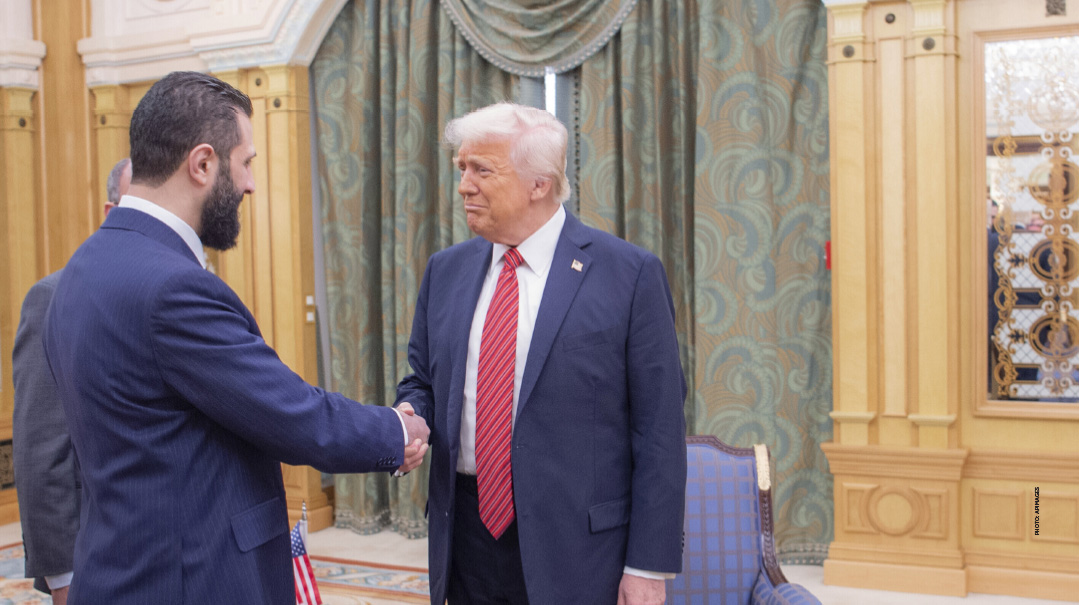Judicial Reforms Spark Global Angst

“The High Court in Israel has powers unlike any other court on the face of the earth, full stop”

Photo: Flash 90
Israel hasn’t experienced anything this politically divisive since the Oslo Accords.
The unruly street demonstrations with the potential for violence.
The ever-widening chasm between the political left and right.
The alliance between the Israeli left and international elites, including the US secretary of state and other prominent Democratic politicians, who fret publicly that judicial reforms spell a death knell for Israeli democracy and the dawn of a precipitous economic decline.
The first phase of the reforms, which the Knesset plans to vote on this month, is only preliminary. It will take months for the full package to be considered. It’s also not quite a matter of life and death, like Oslo became with its ongoing reign of terror.
But the new government’s gambit to dominate the judicial selection process and restrain the power of an unbridled judiciary has become a war of nerves and a major test of its willpower, and ultimately, its legitimacy.
“The High Court in Israel has powers unlike any other court on the face of the earth, full stop,” said MK Simcha Rothman, who chairs the Knesset’s Constitution, Law, and Justice Committee.
In an extensive interview on Mishpacha’s Power Politics podcast, Rothman detailed the reforms, adding that if they are passed, High Court nominees would have to testify before his panel, just as United States Supreme Court nominees require Senate confirmation.
“There will be public hearings,” Rothman said. “The opposition will be represented, and they can ask questions too. It will be much more transparent and democratic than it is today.”
Another plank of the reforms would define and limit the laws and political appointments that the High Court would be entitled to review.
Opponents of the reforms contend that the courts are Israel’s only body that protects individual liberties or that can hinder a small Knesset majority, as we have now, from grabbing tyrannical powers. They argue that granting the Knesset full control over new judges and crimping the High Court’s powers is dangerous in a country where the Knesset is the sole legislative body, and the government lacks the formal checks and balances of the American system, with its powerful executive branch and two legislative chambers sometimes controlled by different political parties.
If debate only revolved around these fundamental issues of how to strike a fair balance, the public’s temperature would return to normal.
However, the opposition has resorted to scare tactics, one of which is to compare the proposed Israeli reforms to the judicial reforms that Poland and Hungary passed in the last decade.
Such comparisons are faulty, argues Eugene Kontorovich — an expert in international constitutional law — and a director of the Kohelet Forum, a think tank that helped devise the Israeli plan.
“It’s so apples and oranges, I just never know where to start,” Kontorovich says. “They [the opponents] are just picking countries they don’t like. Their characterizations of Hungary and Poland as not democratic are also a political exaggeration. They don’t like the positions those governments are taking on certain issues, but that’s not the same thing as being non-democratic. The burden should be on people making that argument to specifically compare Israel’s reforms to those reforms.”
Aside from that, experience from Poland and Hungary shows no negative economic impacts from judicial reforms. Poland began enacting its reforms at the end of 2015. By 2017, the World Bank issued a report calling Poland a “development success story.” Poland’s economy ranks 21st in the world today, just one notch behind Switzerland. Since 2018, Hungary’s economy has averaged more than 5.5 percent annual growth, except for 2020, the first year of the Covid pandemic.
A second scare tactic is the daily warnings from the high-tech sector, former Bank of Israel officials, and other leading economists (mostly affiliated with the political left), who warn that the reforms will tank the Israeli economy and lead to a bank panic. Some cite a recent precedent in the UK, where a fuss ran Prime Minister Liz Truss out of town after she presented a plan for budget reforms that sent both the British pound and government bonds tumbling.
In Israel, the shekel has weakened by less than two percent compared to the dollar since the reforms were announced, while bonds have traded in line with movements in interest rates, as they’re supposed to. A handful of prominent high-tech executives have announced they are quitting Israel, while two Israeli bank chairmen have complained to Netanyahu that foreign investors have withdrawn at least $350 million in protest.
Investors often find a pretext to disguise their real motives. If Israeli banks want to keep depositors happy, they ought to do some soul-searching and pay heed to the well-publicized critique in the financial press that the interest rates they offer on deposits are lagging behind the overall rise in interest rates.
Also, according to the Bank of Israel, as of November 2022, there were 4.85 trillion shekels ($1.4 trillion) in financial assets on deposit in Israel. A few hundred million in withdrawals from a pool of $1.4 trillion is fractional.
Sense of Urgency
Here’s what is at stake and why there is a sense of urgency in Israel.
Two of Israel’s most liberal High Court justices, Esther Hayut and Anat Baron, will be retiring in October when they reach their mandatory retirement age of 70. Justice Uzi Vogelman, who is cut from the same activist cloth, will retire in October 2024.
Just as President Trump was able to remake the Supreme Court by appointing three conservatives, Israel faces the same opportunity.
Israel’s nine-member judicial selection panel consists of three sitting High Court justices, two Israel Bar Association members, and four Knesset members. The justices and the lawyers — five in number — have an automatic majority. Even though it takes seven votes to select a judge, necessitating a compromise with the Knesset members, if all three justices stick together and say no, the judicial candidate is disqualified.
While Justice Minister Yariv Levin (Likud) has proposed expanding the selection panel to 11, by adding two more MKs, Simcha Rothman would leave it at nine, but he would replace the two bar association members with two MKs, giving the government a 6-3 majority. To make it easier to obtain the seventh and deciding vote, the Rothman plan would replace two of the sitting justices with two former senior judges who would be appointed by the Minister of Justice, who is normally a coalition member. It’s another way to give the government a majority and end the High Court’s monopoly.
Asked if he ever anticipated the opposition from all four corners of the world, Rothman said that he understands the intense interest in what happens in Israel, both from a political and religious perspective, and that’s why silence is more valuable to him than words.
“I would never say to anyone that what’s happening in Israel is none of your business, but I would say you need to respect the sovereignty and the choice of the people of Israel to make this reform,” Rothman said. “And I’m sure that after we do what needs to be done and what has long been awaited by the Israeli public, we will have a stronger and safer Israel.” —
(Originally featured in Mishpacha, Issue 949)
Oops! We could not locate your form.







